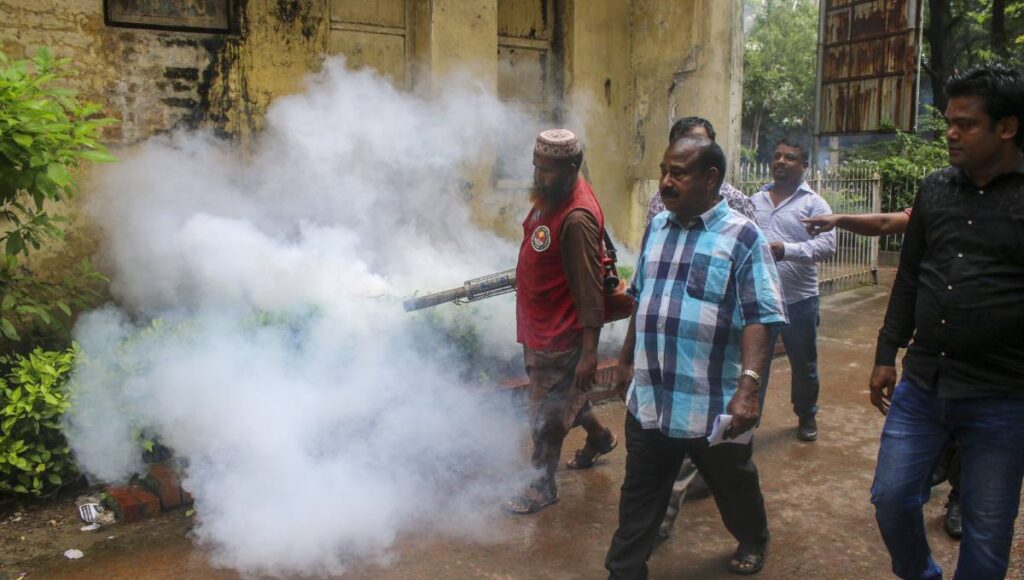Dhaka, Jan 22 – The High Court on Wednesday commented that the capital city Dhaka should be declared as Ecologically Critical Area (ECA) in order to save the environment and protect the city from pollution. The HC bench comprising Justice Gobinda Chandra Tagore and Justice Mohammad Ullah came up with the comment while hearing on a contempt of court petition filed by the Human Rights and Peace for Bangladesh (HRPB), an human rights body, against Dhaka Water Supply and Sewerage Authority (WASA) for not taking steps to control and stop the underground drains and sewerage lines that have been polluting the Buriganga river.
Advocate Manzil Murshid, counsel for the HRPB, told reporters that although the High Court in several times directed the government to take steps in protecting the Buriganga river from pollution in order to save the environment of the city, the authorities concerned of the industries carried out their businesses due to the legal loophole.
In 2012, the HC directed the WASA to provide land for the industries to set up an effluent treatment plant (ETP). But, the WASA did not provide the land taking the opportunity the authorities concerned of the industries carrying out their business resulting in the immense suffering for the city dwellers due to the environment pollution, he added.
Citing the environment law, the lawyer said that the government can declare the Dhaka as ECA as like as Cox’s Bazar and Sundarbhan for the greater interest of protecting the capital city from pollution to protect its environment.
In response to a query, the Manzill said that he would move before the High Court after scrutinizing the all documents and evidence of air pollution and environmental pollution of the Dhaka.
Earlier on January 20, the same bench of the HC directed the Department of Environment (DoE) to immediately shut down a total of 231 industries in Dhaka metropolitan area near Buriganga River.
The court asked WASA, Titas and Dhaka Power Distributor Company (DPDC) to disconnect the water, gas and electricity supply to the illegal industries and to inform the DoE after complying with the order.
The HC also directed the DoE to submit a report after complying with the directive to the court by February 20.
The court further directed the DOE to submit a detailed report by the next three months on the industries and organisations in the Dhaka metropolitan area which has no environmental certificate.
Also, the HC ordered the local administrations to stop dumping waste into the Buriganga River and to submit a report before the court by February 20.
The HC bench came up with the directives during a hearing of a writ petition filed by the HRPB seeking necessary order to save the Buriganga River from pollution and occupation.
DOE lawyer Advocate Amatul Karim today submitted a report to the HC bench saying that the DOE has found 231 industries near the Buriganga River having no environmental clearance certificate.
Earlier on December 3, the same bench of the HC directed the Bangladesh Inland Water Transport Authority (BIWTA) to stop all but 68 underground drains and sewerage lines connected to the Buriganga River.
The HC also observed that the Dhaka Water Supply and Sewerage Authority (WASA) is the authority concerned to control and stop the 68 underground drains and sewerage lines that have been polluting the river.
“These drains and sewerage lines have been polluting the Buriganga River. The pollution must be stopped. Dhaka city corporations are responsible to control the surface pipelines in the capital,” the HC observed.
The HC bench came up with the order after receiving a report by the BIWTA, which stated that there are 68 underground drains and sewerage lines connected to the Buriganga River, that are maintained by Dhaka WASA.
The bench directed the BIWTA to identify whether there are any other waste disposal lines connected to both the banks of the Buriganga River in Dhaka except for the 68 underground drains and sewerage lines and to seal them off by January 7, 2020.
In its observation, the HC bench also said that the WASA authority could not avoid the responsibility of polluting the Buriganga River by running sewerage lines into it. The court asked the WASA authorities to take a decision to stop the sewerage lines for the greater interest of the environment.
On November 17, the court had ordered the Department of Environment (DoE) to shut down 27 dye factories and private hospitals without environmental clearance certificates located on the banks of Buriganga River.
In response to a writ petition, the same HC bench also issued a rule asking the managing director of WASA to explain in 15 days why legal action should not be taken against him for making a false statement about sewerage lines connected to the river.
HRPB had filed the petition in the HC in 2011, seeking its directive over the matter.
Advocate Manzil Murshid, president of the HRPB, who filed the petition, told reporters that the HC had earlier sought reports from the DoE, BIWTA, and the MD of WASA about the structures built in Shyampur and Postogola areas on the banks of the Buriganga river without obtaining environment clearance certificates.
The HC bench is likely to deliver its order over the matter today, Manzil said. – Staff Reporter




